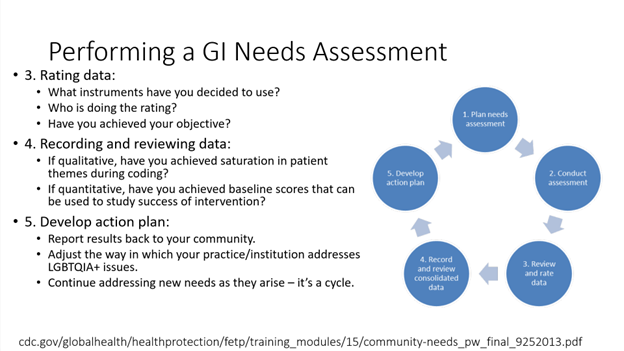
Sexual and gender minority patients experience health care discrimination that may make them less likely to seek and receive proper care, according to Christopher Vélez, MD, a gastroenterologist at Massachusetts General Hospital. Dr. Vélez is a presenter at Digestive Disease Week® (DDW) 2023 on the topic of how physicians can mitigate discrimination and provide LGBTQIA+ affirming care in their practices.
“Affirming care for LGBTQIA+ patients means not allowing heteronormative assumptions and biases to negatively impact the health of people from sexual and gender minority communities,” said Dr. Vélez. “It doesn’t take a lot of effort to be an affirming physician or to have an affirming practice.”
Dr. Vélez said that some of the changes needed to provide affirming care must take place at a systemic level, but he stressed the role of individual physicians in incorporating affirming care in patient interactions.
“The doctor-patient relationship is one-on-one,” he said. “If I misgender a patient, I apologize and ask to be corrected. Just that simple act can help someone feel more comfortable and more likely to disclose their health care needs. They feel that you are not making judgments about them.”
He outlined other actions physicians can take to provide LGBTQIA+ affirming care, including:
- Recognize that sexual and gender minority people are part of your patient population. Vélez encouraged physicians to dispel their notions of where people live and what they look like. “Sexual and gender minority individuals live in every city and state in the country,” he said. “If you don’t see any of these patients in your practice, they are either afraid to disclose their status or are being scared away.”
- Dispel preconceived notions about how sexual and gender minority individuals present or the sexual activities they engage in. Assumptions like these can cause inappropriate management of certain diseases. For example, some rectal sexually transmitted infections may present similarly to ulcerative colitis. A sexual history can therefore provide important information for screening and management decisions.
- Understand your local environment and display signs of support. Several states are passing or considering legislation that may make patients more reluctant to disclose their gender identity or sexual orientation. Understanding your local climate and displaying signs of support, such as the LGBTQIA+ flag and/or a policy against discrimination based on gender or sexual orientation can help patients feel more comfortable.
- Participate in outreach opportunities. Community outreach during Pride month and reaching out to sexual and gender minority communities can help you better understand the barriers these communities face and their health care needs.
- Use gender-neutral language and diagrams. Update intake forms to use gender-neutral terms, such as “spouse” or “partner” instead of husband/wife, and “parent” or “guardian” instead of mother/father. In addition, use diagrams of the body that are not obviously gendered when asking patients to identify areas of pain or discomfort.
- Advocate for and participate in training to discuss the needs of sexual and gender minority patients. Velez is leading such efforts at his institution and has found the response to be very supportive.
- Don’t be afraid to make (and learn from) mistakes. “As physicians, we never want to admit when we’re wrong,” said Dr. Vélez. “Not wanting to make a mistake may prevent some people from even trying to provide affirming care. It’s okay to make mistakes. It’s just a matter of being open to correction and moving on without dwelling on them.”
“Providing gender-affirming care is about making sure that historically marginalized communities receive better care,” Dr. Vélez concluded. “That’s something every physician should strive for. It is encouraging to see a national organization like DDW dedicate a session on helping the gastroenterology community better understand the needs of LGBTQIA+ patients.”
Dr. Vélez’s oral presentation, “How to deliver affirming care for sexual and gender minority patients in the world of digestive disorders” on Tuesday, May 9, at 2 p.m. CDT is part of the session “AGA Gastroenterology and the LGBTQ+ Community.”
Access to session recordings
If you’re attending DDW, your registration includes access to a recording of this session, available to watch at your convenience until May 17, 2024. Session captures will be released 24 hours after the session ends. Non-attendees can also purchase access to DDW On Demand to watch session recordings after DDW ends.




